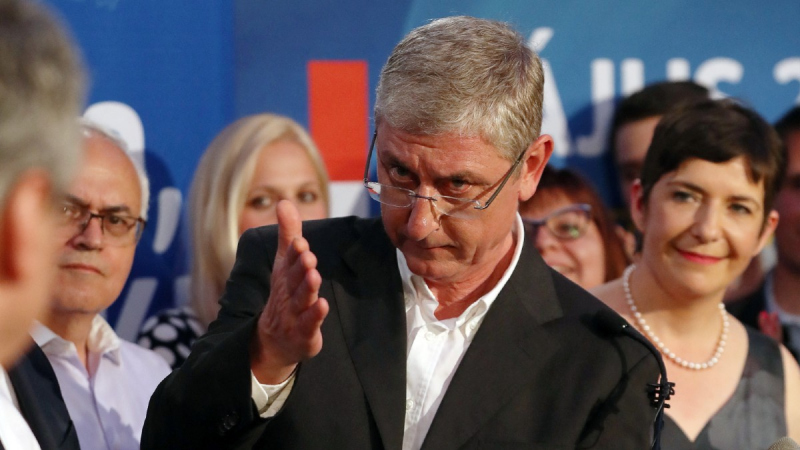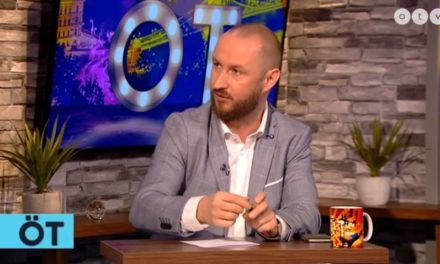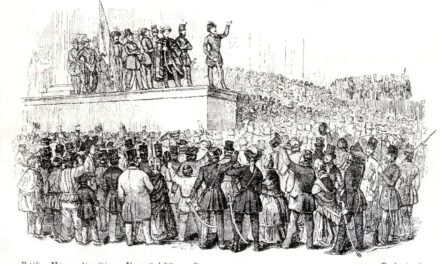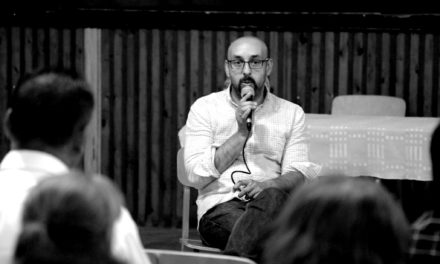15 years ago on this day, the Ószöd speech was made public, which shook to its foundations the democracy that emerged from the peaceful transition of the system change and shattered the faith of millions of Hungarians in the rule of law. However, opinions are still divided about the reason for the leak and the identity of the leaker.
It is well known that on the afternoon of September 17, the audio recording of the Prime Minister's closing speech given at the closed faction meeting of the MSZP on May 26, 2006 - one month after the election victory - was distributed by unknown person(s) to Magyar Rádio, which published it in its 4 pm news and on its website. the news, and around five o'clock in the afternoon, Gyurcsány, who was in Győr at the time, admitted to a reporter from RTL Klub that he was speaking on the recording.
We do not know who listened to or read the transcript during the four months between the delivery of the speech and its publication, apart from the members of the approximately 200-strong MSZP faction present, just as decisive evidence about the leaker was not made public, but we do know the domestic and international context. , because Gyurcsány did not only deceive Hungarian voters.
For example, do we know how and what the ex-prime minister agreed with EU Commissioner Joaquín Almunia , who questioned him in a face-to-face meeting about why he wants to deceive the European Union with false data? The financial commissioner referred to the delayed convergence program, according to which the Hungarian economy was booming.
Gyurcsány is said to have passed out. "What now?" - asked.
"We see two possibilities," Almunia said. One is for the EU to make public that you have thoroughly falsified macroeconomic data. In this case, however, we must apply sanctions and withdraw EU subsidies from Hungary. The other option is for you to admit that the data was manipulated, to admit that you committed the fraud. He admits in Hungarian that they lied to us."
Gyurcsány accepted the offer, his request was that he could do all this after the elections. Almunia did not act on his own account, he coordinated his move with the European Commission, and he had to report the result in writing. The document is classified as strictly confidential.
The agreement was concluded, the committee sent back the convergence report for revision, and September 2006 was set as the deadline. The revised program was completed by the end of August, and Gyurcsány wanted to get feedback from an influential politician before submitting it to the committee. His choice fell on Jean-Claude Juncker, Prime Minister of Luxembourg. Gyurcsány flew to Luxembourg. László Boglár, Gyurcsány's press chief, reported on the results of the meeting in Budapest. Regarding the main measures, the trajectory and the directions of the Hungarian convergence program, Juncker did not criticize any point in connection with the program.
Some journalists accredited to Brussels noticed that there was no joint prime ministerial press conference. One of them asked the Hungarian Ministry of Foreign Affairs to send him the convergence program, but he received the answer that it only exists in Hungarian and has not been translated into English. The journalist then called Juncker's chief of staff and asked him, when did his boss learn Hungarian? After clarifying why the question was asked, the chief of staff answered:
"My boss patiently listened to Gyurcsány, he said that what he presented sounded good at first, but he would wait for the official material and form an opinion only after studying it thoroughly."
With this, Gyurcsány played down his credibility with one of the most influential politicians in the EU, and the same thing happened with German Chancellor Angela Merkel, who was forced to issue a rebuttal:
"The topic, which the Hungarian Prime Minister claimed to have been approved by Mrs. Merkel, was not even discussed at the meeting."
All of this leads to the conclusion that so many socialist politicians (Péter Kiss, Ferenc Baja, Imre Szekeres, Katalin Szili, László Puch), the leak mostly served the interests of Ferenc Gyurcsány. But the retired supreme court council chairman criminal judge Miklós Völgyesi also has a similar opinion, according to whom there is a lot of evidence that the leak was the work of Gyurcsány, and such evidence is also the pact concluded with the EU commissioner, which stipulated as a condition for the prime minister that he must inform the Hungarian public opinion about the country's real situation.
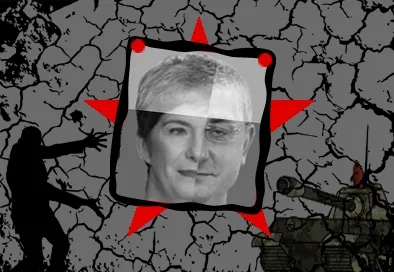
In Balatonőszöd, in the government resort, where the prime minister gave the infamous speech in front of his family in a closed circle, the audio recording was made in two copies, in very poor quality. These were kept in the vault of Zoltán Gál J. (today the Hungarian voice of Gergely Karácsony - ed. ), the prime minister's chief of staff. On September 17, it was first published in part and later in its entirety on Magyar Rádio. Coincidentally, the president of the radio station was replaced just then, and a new one, György Such, was appointed.
One of the recordings was improved by the technicians of Magyar Rádió, the cassette was copied in several copies and delivered by motorcycle couriers to the editorial offices of several national media. Who made this decision? It is certain that he is not the president of Hungarian Radio, which operates under government control. He couldn't have done that without authorization. For example, how did you know that the audio recording was not manipulated? It was clear that the publication would create an almost revolutionary situation in the country.
"You can demonstrate in front of the Parliament. They will get bored. They're going home"
Gyurcsány alluded to it in his speech. And how interesting, national police chief László Bene, who is appointed by the prime minister and therefore has to ask him for permission to travel abroad, traveled to the Interpol conference just then.
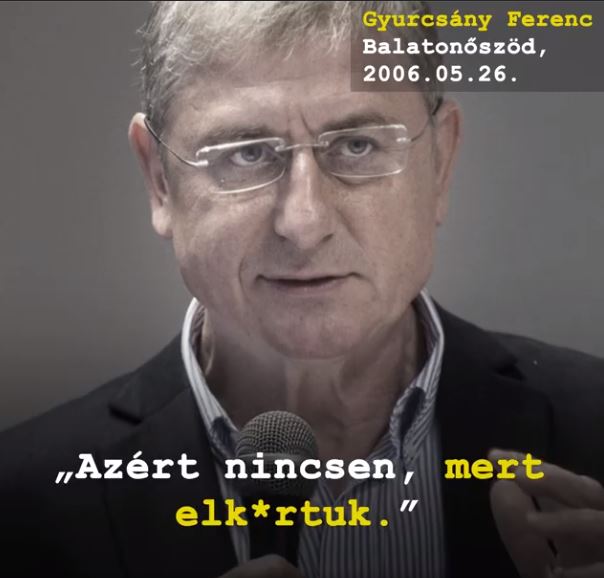
After the speech came to light, Gyurcsány of course denied that it was in his interest to leak it, and after years of smearing, another smear followed: in June 2011, he wrote down and sent to MSZP president Attila Mesterházy the information at his disposal, including the names of those who, according to him, could have leaked it. the speech. However, Mesterházy destroyed the envelope he received from Gyurcsány without reading it in front of journalists the next day. He justified his action by saying that if Gyurcsány does not feel irrefutable and therefore does not disclose his information, then he cannot be expected to do so for him.
In 2014, Gyurcsány recalled his own speech in the ATV studio
"This story, if it doesn't come out in September 2006, I don't remember giving such a speech, believe me! ...I didn't feel guilty at all, not even today. That's a damn good speech. How's that for swearing? Well, I swear!"
Then, to the reporter's question whether he would not have used the political opportunity of the Ószöd speech coming to light in the opposite case, he answered as follows:
"Did you ever hear from any prominent Fidesz that they leaked the Ószöd speech? Gyurcsány asks. I admit, no, answers Egon Rónai. Well then they are lying! continues the ex-prime minister. Eight years ago, it turned out that they are the ones who leak in the end. We don't know who they are at the beginning, but they are at the end."
The choreography is the usual, complete parrying, blaming the biggest opposition party at the time, Fidesz, for what happened. This is really not surprising from someone who never once stood before the Hungarian people and said openly that yes, I did this or that, that's why I did it, and I take responsibility for it. Unfortunately, however, according to the current state of science, information can only be leaked once, as we cannot fire the same bullet twice. If you like: what's leaked is leaked.

